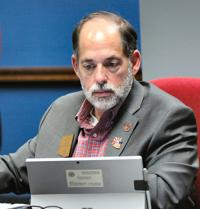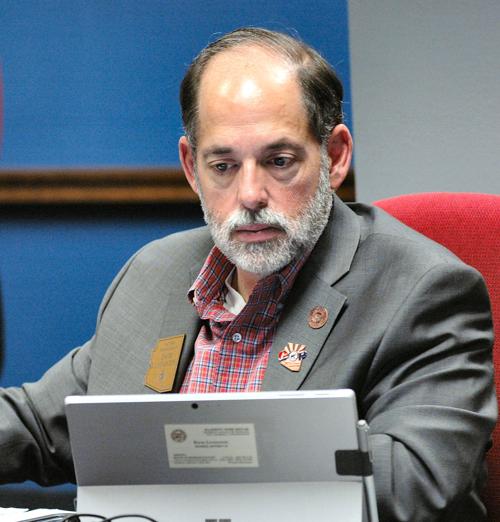So you told an insurance agent what you wanted and got your policy in the mail, complete with a cover sheet declaring what coverages you have.
Now, if some lawmakers get their way, you’ll have to read that whole multi-page contract to be sure that you’re getting what you want.
Legislation awaiting Senate action would spell out in statute that it would not matter what’s on that cover sheet and synopsis of benefits. Instead, only what is actually in the contract would govern — even if that page of declarations clearly says otherwise.
And there’s something else in HB 2045 that cleared the House last week on a 35-23 party-line vote: If there are differences between the English version of the contract and any version in a foreign language your agent gives you, the English version governs.
Rep. David Livingston, R-Peoria, is pitching the measure as one of consumer protection.
He said insurance companies are afraid to provide contracts in languages other than English for fear that something might not have been translated correctly and a policyholder could claim that he or she is entitled to coverage based on the Spanish-language version.
And Rep. Mark Finchem, R-Oro Valley, said that’s only proper given that a state constitutional amendment makes English the official language.
“We spent hundreds of millions of dollars in our public education system on something called ‘English-language learning,’” he said. “Yet we are making excuses for people to not learn the English language.”
Rep. Mitzi Epstein, D-Tempe, said that focus on foreign language misses the key point of the legislation: Policyholders would no longer be able to rely on that cover page to determine if they got the insurance they wanted.
“This is about that declarations page ... and looking out for consumers,” she said.
“If we leave the law alone, they can trust the declarations page,” Epstein argued. “If we change this, all of our constituents will have to read every single word of their contracts in order to trust what’s going on in their policy.”
Rep. Isela Blanc, D-Tempe, questioned Livingston during floor debate about the change, noting his comments that it is good for insurance customers. She wanted to know whether the changes were actually requested by those who buy policies.
“Citizens of the state of Arizona asked me to run this bill,” he responded during floor debate.
That answer clearly did not satisfy Blanc.
“These so-called citizens, are they connected to insurance agencies, companies, groups, special interests related to insurance?” she asked.
“Yes,” he finally conceded.
Blanc said that proves HB 2045 has nothing to do with consumer protection and will lead to policyholders being misled. And she cited her own practices as an insurance consumer as a prime example.
“I have home insurance, I have car insurance,” she said.
“I trust that my insurance company, in the one- or two-page sheet has covered me,” Blanc continued. “And I do not go through the contract.”
Blanc said she presumes that’s the case with most policyholders.
But it wasn’t only the issue of consumer protection that resulted in all House Democrats voting against the change. Rep. Eric Descheenie, D-Chinle, pointed out to the GOP majority that they could eventually come to regret the idea that the majority should determine what is the official language of Arizona and that documents in other languages have no legal force.
“It’s a statistical certainty that in our lifetime the Latino community, the Hispanic community, are going to become the most populous race amongst us,” he told House colleagues. “I would like to think we would begin to shift away from English version in terms of institutionalizing some of these discussions and these bodies of law, given where we’re headed.”
Descheenie said he comes from an area where the majority speak neither English nor Spanish. And he said that’s not just reflecting the Navajo language but also the Hopi.
“Mind you, there are 22 recognized tribes in the state,” he said.





